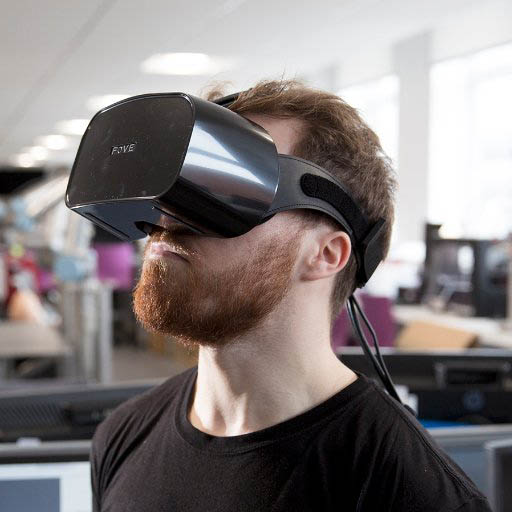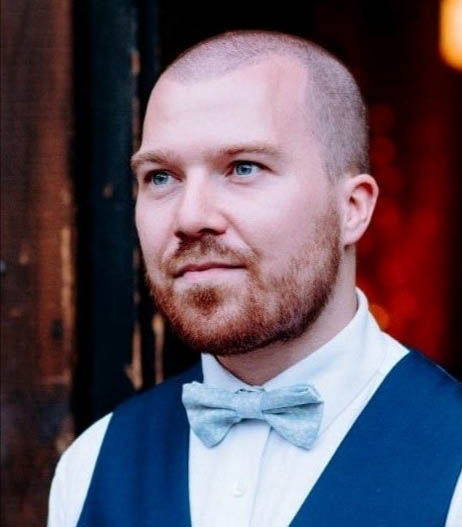
For much of my life, I considered having a stutter to being a burden. It was exhausting, frustrating, and affected my quality of life. I had no idea what career I'd pursue and whether I could be successful at the same time as having a stutter. But there's one thing that I did know: I liked technology.
In my hometown, Basingstoke, UK, I studied computing at my local college and achieved the highest grade possible, which opened the doors to university. The UK is very fortunate to host so many prestigious universities, and it was incredibly difficult to narrow them down to one. I suppose you can think of going to the supermarket, wanting to purchase a particular type of beverage, only to find out that there are 130 to choose from. Not easy, but you narrow them down until you find one that suits you the most. I chose Digital Media Technology at Nottingham Trent University, and what a fantastic choice that was. The course mainly focused on creating games for teaching, learning, and training purposes, including being heavily involved in virtual reality. But, this decision also brought lots of thoughts: what about my stutter? How will I be able to meet others? Do presentations? Achieve my degree?
Well, why don't I try to hide my stutter?
For a few months, I tried the concept of hiding a stutter. It was tough to do in some situations, especially when I needed to introduce myself. I'd often not talk about my stutter and avoid any situation where it could be present. I'd dodge certain words and regularly ask friends to introduce me. Nevertheless, I managed to get through my first two years of university and into my third and final year. The year we must choose our final project to showcase the knowledge we've gained from the course.What if virtual reality could be used for stuttering?But what to do? There were so many example projects (having throwbacks to choosing a beverage here), but none of them felt right. They didn't represent me. I met with my supervisor, and he mentioned he'd been to a conference and saw a presentation that showed how virtual reality could be used for social anxiety. What if... What if virtual reality could be used for stuttering? What if I could combine my knowledge and skills with something so personal to me? This thought right here paved the way to shape the person I am today.
A Promising Study

The project produced great primary results, and I was hooked on this idea. It showed that people who stutter can reduce their levels of anxiety when practicing speaking situations using virtual reality, similar to previous research. I could see that the software I created positively impacted people who stutter, and people were interested in what I did. I presented my work at the British Stammering Association National Conference in 2016, and I was overwhelmed with how well it was received. The seats were full, and people had to stand around the edges of the room. This gave me an incredible 10/10 level of confidence. Not only did I like what I was doing, but it was needed. I wanted to do more.
The Field of Medical Product Design
How do I expand on this? How can I get this one step closer for people who stutter to actually start using? The answer: studying a master's in Medical Product Design at Nottingham Trent University. The master's degree was a whole new level for me, mostly because it focused on design rather than computing. Thus, I decided to refine the product's design by incorporating my knowledge of technology by using an eye-tracking virtual reality headset. Eye-tracking in virtual reality was incredibly new at the time, and I managed to get my hands on one of the first shipped headsets.
Tracking the movement of the eyeSo why use eye-tracking? Well, people who stutter can sometimes close, flicker, or fixate their eyes in the moment of a stutter, to varying degrees. These eye behaviors are only measured subjectively by a speech and language pathologist, which is totally fine, but how can this be improved? Is there a way to assist the speech and language pathologist by providing an objective eye-tracking tool? Well, I made this using virtual reality.
A Tool For Speech Pathologists
The software that I made in my master's degree could objectively measure the given moment that someone closed their eyes, the duration their eyes were closed, and the percentage of time they looked at any given area of the virtual scene. I produced a groundbreaking tool for speech pathologists.
The research was featured in the news, podcasts, and other media worldwide, including BBC News, Independent, Guardian, and Stuttering is Cool (in no particular order of greatness). I've also presented this work at conferences and talks in countries such as the UK, USA, Australia, and Canada (shoutout to the CSA for hosting a SUPERB online conference in 2020).
My Burden Became My Greatest AssetDid I mention earlier that I had a 10/10 level of confidence earlier? Well, this was now a solid 50/10. I was ecstatic, and I knew that the work I was doing could assist many people who stutter, just like myself. Suddenly, what was once my burden became my greatest asset. I started being more open about my stutter, meeting others who had similar experiences, and I now knew that if it weren't for my stutter, I wouldn't have had this motivational and uplifting stage of my life.
The Need for Research
Since then, I've received hundreds of messages asking how people can use this software I created. It wasn't ready for the public to be used, and any other existing software out there just wasn't sufficient for speech disorders. So I thought to myself: can I really create virtual reality software for people who stutter as a career? Well, I've now taken the leap, and I'm currently turning my previous research into something that others can use by spending 100% of my time creating _withVR_.
_withVR_ provides tools to safely practice customizable speaking scenarios using virtual reality, providing full control of the situation. It does all of the above and so much more. The tools enable speech and language pathologists and researchers to control speaking situations in their clinical setting, in real-time. Virtual reality can help bridge the gap between the clinical setting and the real world, providing realistic speaking scenarios that can be stopped at any time. People who stutter can also practice these situations in the comfort of their own home, where they can work on their own speaking goals at their own pace to better practice for a real-life speaking situation. These tools are still in development, and if you want to know more, feel free to reach out to me at gareth@withvr.app
A Career and Purpose in Life
I now live in the beautiful city of Ghent in Belgium. And if you told me 10 years ago that I'd be where I am today, that I'd have so many great friends who stutter, that I'd travel the world and be on the news, or that I'd make a career applying my skills to assist people who stutter, I'd be understandably puzzled.
Yet, it has happened, and I am incredibly grateful for my journey so far.
Sure, I still stutter a lot, and I have some days that are more difficult than others, but this is who I am, and I'm happy about that. I've used my stutter as something that others can benefit from, and I am riding the hell out of that wave.
If you offered me a magic pill to get rid of my stutter tomorrow? Well, I don't think I'd take it.Gareth Walkom lives in Belgium. He participated in the 2020 CSA conference as a workshop presenter. This is his first article for the CSA web site.
